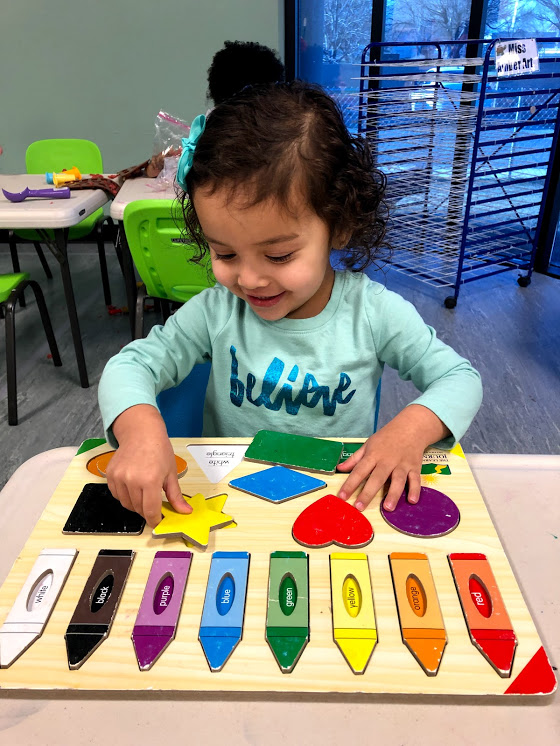You probably know that puzzles are good for the brain. But did you know exactly how the brain gets a boost from puzzles?
Cognitive Development
Cognitive skills refer to the skills your brain gains and uses to think, learn, remember, reason, pay attention, and read. As these skills are developed, they stick with your child to help in all areas of their life.
Puzzles help to develop cognitive skills in a variety of ways, as children learn new themes and topics from the puzzles (letters, colors, shapes, animals, etc.). They also build their memory as they remember which pieces fit where. They use critical thinking to work on and complete the puzzle.
Problem Solving
Puzzles are straightforward, in that there is only one solution: solved. But there are a variety of ways to achieve this solution, and that’s where your child’s problem-solving skills get a big boost.
If your child wants to get all the pieces in the correct places, they’ll need to develop strategies to make that happen. They’ll use trial-and-error, reason, studying, and more to get to the end result.
Fine Motor Development
Fine motor development is talked about a lot during the preschool years. And that’s because it’s a critical life skill. Just think of all the buttoning, zipping, chopping, stirring, tying, untying, writing, typing, and more that you do on a daily basis. If you hadn’t developed your fine motor abilities, these everyday tasks would be a challenge.
When putting together puzzles, your child uses fine motor movements to pick up the puzzle pieces. She uses a finger to smooth the pieces into place. All of this will help her develop fine motor skills so she can manage other fine motor activities. When thinking of future academics, puzzles are a precursor to writing (holding a pencil). They are incredibly valuable for all areas of your child’s future life.
Hand-Eye Coordination
Your child sees the puzzle piece and sees the space where it could go. He moves his hand to grab the puzzle piece, and moves it again to the place where he thinks it should go. Essentially, he’s developing connections between what his eyes see and what his hands do — and how his brain relates this information.
Emotional Development
Patience is not any preschooler’s finest quality. That’s a trait that takes years to develop and fine-tune. (Most adults are still working on it too!)
Puzzles help move that trait development along. Children can’t immediately solve the puzzle. It takes time and multiple attempts. As your child keeps at the puzzle, patience grows.
Cooperation
If you or another child is working on the puzzle with your child, you can talk to each other about the pieces.
“Can you hand me that corner piece? I think I’ve found where it goes.”
“Here’s the teddy bear’s eye. Why don’t you put it in place?”
The puzzle becomes a cooperative effort, and everyone can be happy when it’s solved.
How to Do Puzzles with Your Preschooler at Home
Most small children start with chunky, wooden puzzles, and gradually move to smaller and flatter pieces. A challenge is always great, but don’t push your child if the selected puzzle ends up being a bit too hard.
If you don’t have stacks of puzzles sitting around at home, try making one of these homemade ideas:
Name Puzzle: Write your child’s name in bold letters on a poster board or thick piece of paper. Then, cut in between each letter in zig-zag and curved lines. When you’re done, you’ll have a stack of each of the letters from their name, with edges that fit back together.
Paper Plate Puzzle: Cut a paper plate into pieces, using jagged, curved, and straight lines. You can also do this with cereal boxes, cracker boxes, the box a toy comes in, and more. Take a second look at the things you’re about to throw in the recycling bin, and you’ll likely find a puzzle treasure there.
Random Items Puzzle: Grab small random items from your junk drawer, toy box, or countertops. Trace them onto a cardboard box, poster board, or regular piece of paper. Mix up the items, and then have your child place the items onto the traced shapes so that they fit.
Everything we do at UDA Creative Arts Preschool in Draper, Utah is carefully thought out. We select puzzles that will challenge, but not frustrate, each age group in their cognitive development, motor skills, hand-eye coordination, and problem-solving skills. To learn more or schedule a tour of our preschool, give us a call at (801) 523-5930, or contact us online.


